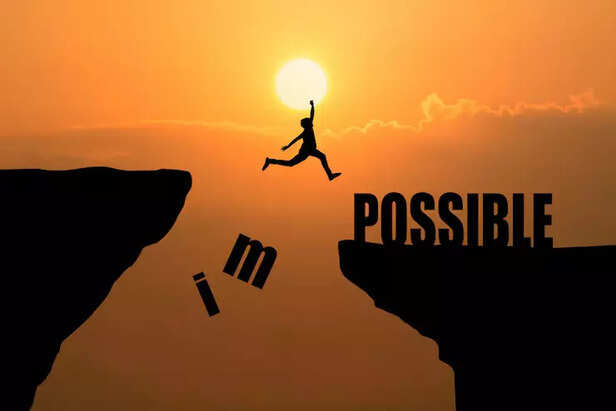Loneliness Isn’t a Sign of Weakness—It’s a Sign You’re Growing
Amritansh Nayak | May 16, 2025, 20:00 IST
This essay examines how loneliness, which is sometimes viewed as a sign of weakness, can also be a potent indicator of personal development. It clarifies the reasons why people feel lonely when undergoing change, the emotional pain of self-discovery, the difference between loneliness and solitude, and how to use loneliness to spur personal development.
Many times, loneliness is misinterpreted as a sign of social failure or weakness. Actually, it might be a strong sign that you are changing, developing, and becoming a more genuine version of yourself. The discomfort that comes with self-discovery, the deeper causes of loneliness during personal development, the distinction between loneliness and loneliness, and how to use loneliness as motivation for change are all covered in this article.

Loneliness frequently arises as a result of change rather than a problem. As we develop on a psychological, emotional, or spiritual level, we frequently find ourselves in new situations. This may entail moving away from ingrained routines, settings, or even others who don't share our changing beliefs or objectives. Although progress is usually praised, the internal changes it necessitates can cause a deep sense of loneliness. Imagine leaving behind a group of people you've known your entire life just to discover that you need to be alone on your road. That change might be unnerving.
Conversations may no longer feel meaningful, long-standing friendships may wane, and your feeling of community may falter. However, this loneliness is a reflection of movement rather than a weakness. The familiar comfort is being abandoned in pursuit of something more profound and in line with your evolving self. Growth establishes its roots during these silent, occasionally agonizing times. Distance creates a space that facilitates introspection, clarity, and reorientation. It can be beneficial to perceive loneliness as a sign that you're growing and that, although the path may be lonely at times, it's guiding you towards more authenticity and purpose rather than as a setback.

Why Self-Discovery Involves
Loneliness and other emotional distress are frequently an inevitable aspect of self-discovery. We move into a transitional phase where our old selves no longer fit, but our new selves are still developing, as we start to doubt our old identities, behaviors, or beliefs. This transitional phase can be confused, difficult, and lonely. But it's in this discomfort that true change starts. Being alone during this process is typically a sign of healing rather than a sign of brokenness. There is a void left when you let go of past incarnations of yourself, such as relationships that hindered your development, roles you played to fit in, or beliefs that kept you safe.
Although it may seem like a loss, that emptiness is actually making room for something more authentic to who you are. The resulting emotional distress is a sign of growing closer to your true self, not a sign of weakness. It compels you to pause, think, and pose difficult queries, such as: Who am I without these roles? What am I really worth? Although asking these questions can be awkward, they are necessary for self-discovery. Accepting this discomfort instead of fighting it can result in increased self-awareness, resilience, and clarity. Even if growth isn't always easy, it's always worthwhile.

Although loneliness and being alone are sometimes confused, they are not the same thing. While loneliness is the mental state of feeling cut off, even when surrounded by people, solitude is the state of being physically alone. Peace can be brought by one, and suffering by the other. However, both contribute to personal development. For introspection and rejuvenation, solitude can be a potent tool. Without outside distractions, it enables you to calm down, pay attention to your inner guidance, and re-establish a connection with your principles. You gain a clearer understanding of your wants, desires, and identity when you are by yourself. Many people find out what really important to them during these calm times.
Conversely, loneliness typically manifests when there is a disconnect between the reality we experience and the connection we long for. It's an indication that something is changing either inside or outside of us. Even while loneliness is unpleasant, it can lead to profound realizations, it can show you what's lacking in your life and indicate the connections or introspection you might need to do. You can use each of their special abilities if you know how they differ from one another. Loneliness exposes your emotional realities, but solitude fosters self-confidence. Both are vital components of development when they are accepted with awareness.

Even if it hurts, loneliness can be a strong indicator of personal development. By embracing loneliness as a chance for more meaningful self-connection and deliberate transformation, you can turn it from a weakness into a driving force for personal growth. Recognize your loneliness first, without passing judgement. Don't let distractions numb it. Rather, consider this: What is this emotion attempting to teach me? This self-examination helps you become more emotionally aware and pinpoint areas in your life that might be out of balance. Make use of the space loneliness creates to rekindle your talents or hobbies. Many writers, painters, and inventors have created their most significant works when they were alone.
Allow your loneliness to inspire journaling, self-expression, or artistic endeavors that mirror your inner self. Loneliness might also help you identify the kind of relationships you really need. Instead, then focusing on superficial relationships, it encourages you to look for deeper, more significant connections. Invest in quality rather than quantity by fostering relationships that feel genuine and reciprocal and joining groups that share your values or interests. In the end, loneliness becomes less about what's missing and more about what's achievable when it is tackled intentionally. It can take you back to your most authentic self as well as to other people.
Many times, loneliness is misinterpreted as a sign of social failure or weakness. Actually, it might be a strong sign that you are changing, developing, and becoming a more genuine version of yourself. The discomfort that comes with self-discovery, the deeper causes of loneliness during personal development, the distinction between loneliness and loneliness, and how to use loneliness as motivation for change are all covered in this article.
Explore the latest trends and tips in Health & Fitness, Travel, Life Hacks, Fashion & Beauty, and Relationships at Times Life!

self-discovery
Recognizing the Causes of Loneliness During Development
Conversations may no longer feel meaningful, long-standing friendships may wane, and your feeling of community may falter. However, this loneliness is a reflection of movement rather than a weakness. The familiar comfort is being abandoned in pursuit of something more profound and in line with your evolving self. Growth establishes its roots during these silent, occasionally agonizing times. Distance creates a space that facilitates introspection, clarity, and reorientation. It can be beneficial to perceive loneliness as a sign that you're growing and that, although the path may be lonely at times, it's guiding you towards more authenticity and purpose rather than as a setback.

healing through loneliness
Why Self-Discovery Involves Emotional Discomfort
Although it may seem like a loss, that emptiness is actually making room for something more authentic to who you are. The resulting emotional distress is a sign of growing closer to your true self, not a sign of weakness. It compels you to pause, think, and pose difficult queries, such as: Who am I without these roles? What am I really worth? Although asking these questions can be awkward, they are necessary for self-discovery. Accepting this discomfort instead of fighting it can result in increased self-awareness, resilience, and clarity. Even if growth isn't always easy, it's always worthwhile.

personal growth
The Distinction Between Loneliness and Aloneness
Conversely, loneliness typically manifests when there is a disconnect between the reality we experience and the connection we long for. It's an indication that something is changing either inside or outside of us. Even while loneliness is unpleasant, it can lead to profound realizations, it can show you what's lacking in your life and indicate the connections or introspection you might need to do. You can use each of their special abilities if you know how they differ from one another. Loneliness exposes your emotional realities, but solitude fosters self-confidence. Both are vital components of development when they are accepted with awareness.

personal development
How to Use Loneliness as a Personal Growth Accelerator
Allow your loneliness to inspire journaling, self-expression, or artistic endeavors that mirror your inner self. Loneliness might also help you identify the kind of relationships you really need. Instead, then focusing on superficial relationships, it encourages you to look for deeper, more significant connections. Invest in quality rather than quantity by fostering relationships that feel genuine and reciprocal and joining groups that share your values or interests. In the end, loneliness becomes less about what's missing and more about what's achievable when it is tackled intentionally. It can take you back to your most authentic self as well as to other people.
Many times, loneliness is misinterpreted as a sign of social failure or weakness. Actually, it might be a strong sign that you are changing, developing, and becoming a more genuine version of yourself. The discomfort that comes with self-discovery, the deeper causes of loneliness during personal development, the distinction between loneliness and loneliness, and how to use loneliness as motivation for change are all covered in this article.
Explore the latest trends and tips in Health & Fitness, Travel, Life Hacks, Fashion & Beauty, and Relationships at Times Life!
